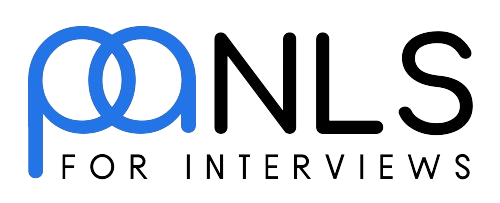Campus Interview Mastery: Proven Tips, Questions & Preparation Strategies for Job-Ready Success

If you’re a college student aiming to crack a campus interview, this guide is crafted just for you. In this article, you’ll learn how the campus interview process works, how to prepare strategically, and what top recruiters are actually looking for when they hire fresh graduates.
A campus interview can be the beginning of your professional journey. Whether you’re from engineering, commerce, IT, or management, most companies today prefer to hire directly from colleges to find the best young talent. These interviews can be rigorous, structured, and competitive. But the good news is—with the right preparation, mindset, and strategy—you can confidently clear every stage and land your first job.
This guide will help you understand the full process of a campus interview, from preparation to execution, while giving you real-life examples, expert tips, and proven strategies to improve your performance and stand out.
Understanding the Campus Interview Process
The campus interview process can seem overwhelming if you’re not prepared. However, knowing each stage in advance helps reduce anxiety and improve confidence. Here’s how the typical process works across most colleges and universities:
- Pre-placement Talk
Companies introduce themselves to the student batch, explaining job roles, packages, work culture, eligibility criteria, and growth opportunities. This is your chance to understand what the company expects and whether you’re a good fit. - Resume Shortlisting
Based on your academic record, certifications, and project work, your resume is screened by recruiters. Customizing your resume for each role can greatly improve your chances of getting shortlisted. For non-tech roles, check out non-technical skills for resume that stand out to HRs. - Aptitude Test
This online or paper-based test usually includes questions on logical reasoning, quantitative aptitude, verbal ability, and basic technical knowledge. - Group Discussion (GD)
A GD tests your communication skills, leadership, listening ability, and how well you work in a team. Your ability to stay calm, think critically, and speak logically is key. - Technical Interview
In this round, expect questions related to your field of study. For engineering students, it could be about data structures, coding, electronics, or mechanical concepts. Explore common C interview questions and backend developer skills to strengthen your prep. For commerce or management, it might include case studies or subject-related scenarios. - HR Interview
The final interview checks your cultural fit, confidence, motivation, career goals, and soft skills. Common HR questions are about your strengths, weaknesses, salary expectations, and relocation flexibility. - Offer Letter or Feedback
If selected, you will receive an offer letter. If not, you might get feedback or be placed on a waiting list. Some companies also conduct additional rounds like managerial interviews or task-based evaluations.
Pre-Interview Preparation Tips
Preparing for a campus interview is not a one-day task. You need to start weeks in advance to build your confidence and readiness. Here’s how to do it:
- Research the Company Thoroughly
Go beyond the company website. Check their LinkedIn, YouTube videos, Glassdoor reviews, and recent news. Understand their mission, culture, and product offerings. - Update and Polish Your Resume
Your resume should be tailored to the job description. Add internships, certifications, academic achievements, technical skills, and personal projects. Avoid generic templates and use active language. - Build a Strong Portfolio
Include links to your GitHub (for developers), LinkedIn, blog, or portfolio website. Document your major academic projects with proper titles, objectives, tools used, and results. - Practice Mock Interviews
Use tools like Google Interview Warmup or platforms like Panls.ai to simulate real interview scenarios. Record yourself and evaluate your clarity, body language, and response structure. - Earn Certifications
Consider upskilling with certifications from trusted platforms like Simplilearn, Coursera, or Udemy. Focus on industry-relevant skills such as Python, cloud computing, business analytics, or communication skills. - Improve Your Communication
Good English and clear expression are vital for HR and GD rounds. Practice speaking on random topics daily, engage in debates, or join public speaking groups.
Common Campus Interview Questions with Answers
Being ready for frequently asked questions can give you a major edge. Here are the most commonly asked campus interview questions and how to answer them smartly:
- Tell me about yourself
Start with your education, key academic achievements, major projects, internships, and your motivation. Keep it concise and relevant. - Why should we hire you?
Highlight your skills, adaptability, passion for learning, and alignment with the company’s goals. Mention relevant experiences or achievements. - What are your strengths and weaknesses?
Pick genuine strengths like problem-solving, teamwork, or creativity. For weaknesses, choose one you’re working to improve, like time management or public speaking. - Where do you see yourself in five years?
Show ambition, but keep it realistic. Mention goals like gaining technical expertise, leading a team, or contributing to innovative projects. - Tell me about a challenge you faced and how you handled it
Use the STAR method—describe the Situation, Task, Action, and Result. Be honest and show how you grew from the experience. - What are your career goals?
Share your short-term and long-term goals in alignment with the company’s path. Avoid overly personal or unrelated goals. - Are you willing to relocate?
Be honest. If yes, show enthusiasm for new experiences. If not, politely explain your constraints. - Do you have any questions for us?
Always say yes. Ask about the role’s learning opportunities, the team structure, or growth paths. This shows initiative and curiosity.
Strategic Tips to Ace the Interview
Acing a campus interview is more than just answering questions—it’s about making a strong impression throughout the process.
- Practice using the STAR method for all scenario-based questions.
- Focus on clarity over complexity when speaking. Interviewers prefer structured, confident answers over jargon.
- Display good interpersonal skills, especially during HR and group rounds. Maintain eye contact and listen actively.
- Ask insightful questions about the company and role to show genuine interest.
- Be honest about what you know and don’t know. Show willingness to learn instead of bluffing answers.
- Stay calm, composed, and professional—even under pressure or challenging questions.
Interview Etiquette and Body Language
Your personality and mannerisms play a major role in your campus interview success. Here are key etiquette rules to follow:
- Dress professionally in clean, well-fitting formal attire. Avoid loud colors, casual wear, or heavy accessories.
- Make eye contact when speaking and listening. It conveys confidence and sincerity.
- Greet politely with a smile and a firm handshake or respectful nod, depending on cultural context.
- Sit upright and avoid slouching, crossing arms, or fidgeting.
- Avoid interrupting interviewers. Let them complete their questions before responding.
- Thank the interviewer at the end and follow up with a short thank-you email appreciating their time.
Mistakes to Avoid in Campus Interviews
Avoiding the wrong behavior can be just as important as doing the right things.
- Don’t memorize answers word for word—speak naturally.
- Avoid being overconfident or arrogant. Confidence is good, but humility wins.
- Don’t lie on your resume or during interviews—honesty builds trust.
- Avoid late arrival or appearing distracted during interviews.
- Don’t give vague or generic answers. Customize your responses with real examples.
- Avoid complaining about previous internships, faculty, or group mates. Stay positive.
Real-Life Tips from Recruiters
Recruiters across different platforms and campuses share these real-life insights for better performance in a campus interview:
- BarRaiser experts suggest using AI-powered mock interviews for instant feedback and analytics.
- Mahalakshmi Tech recruiters value deep knowledge of core subjects and expect students to prepare with sincerity.
- Simplilearn placement coaches highlight the importance of certifications in job-relevant tools and technologies.
- Recruiters look for candidates who are genuine, adaptable, and enthusiastic—not just the academically brilliant.
Tools to Help You Prepare
Use these tools and platforms to sharpen your campus interview skills:
- Google Interview Warmup – for practicing common interview questions interactively.
- LinkedIn – for researching companies, connecting with alumni, and building your digital presence.
- Canva Resume Builder – to create clean, modern resumes.
- GitHub – to host and showcase your programming or data science projects.
- Panls.ai – for real-time interview simulations with industry experts.
Final Checklist Before the Interview
Check all these points to ensure you’re completely ready:
- Your resume is updated, printed, and double-checked.
- Certificates, ID proofs, and transcripts are organized in a folder.
- Your outfit is ironed and laid out in advance.
- You’ve practiced at least one mock interview the day before.
- You’ve reviewed the company’s website and job description thoroughly.
- Your mobile phone is on silent and notifications are off.
- You’ve had a good night’s sleep and a healthy breakfast.
Conclusion
Preparing for a campus interview is not just about clearing one exam or test—it’s about presenting the best version of yourself to potential employers. With smart preparation, polished communication, and a focused attitude, you can stand out from the crowd and secure your dream job.
Want to take your preparation to the next level? Try Panls.ai – the modern “Interview as a Service” platform that lets you practice live interviews with real experts, receive personalized feedback, and build the confidence you need to ace any campus interview.
Frequently Asked Questions
It allows companies to hire fresh graduates directly from colleges, saving time and tapping into young talent.
Ideally, start 2–3 months in advance to allow enough time for resume building, mock interviews, and certification.
Yes, but some colleges have a policy where you cannot appear for more interviews once you’re placed.
Practice mock interviews, meditate, and prepare in advance. Confidence grows with repetition.
Printed resume, passport-size photographs, ID card, notepad, pen, and academic documents.
Not for all roles. Coding is common in technical positions, but management and non-tech roles may not require it.
It can last from 15 minutes to over an hour, depending on the number of rounds and type of role.
Yes, off-campus roles can sometimes offer better packages, flexibility, or international exposure.
